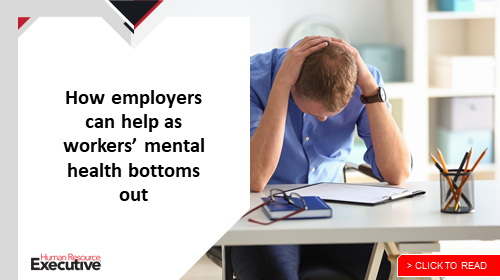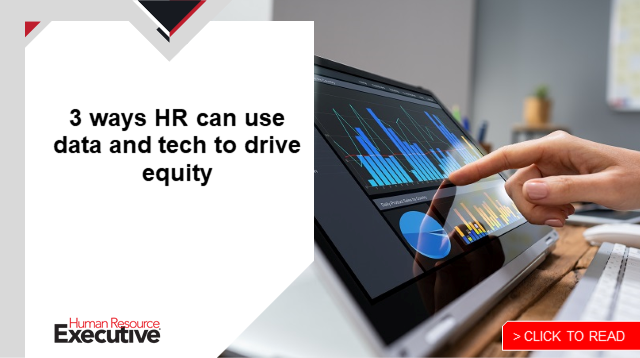Not another workday.
That was the message HR, DEI and other leaders were sending on social media and, presumably, within their own organizations days after an 18-year-old white man allegedly shot 13 people, killing 10, in a racially motivated attack at a Buffalo, New York, supermarket. Eleven of the victims were Black.
“Tomorrow is NOT just another Monday for your Black employees!” Jessica Williams, vice president of people at RefineLabs, posted on LinkedIn on Sunday. “Do not expect us to show up to work tomorrow and pretend that everything is fine following the racist terrorist attack this weekend. We are mentally, physically, emotionally and spiritually drained!”
Denise Caleb, president of the newly created Human Resource Standards Institute of HRCI and an expert in diversity, equity and inclusion, noted the heartbreak being felt around the country—and the work that still needs to be done.
“The horrific events that took place in Buffalo, NY, have left additional families shattered as they try to make sense of how such a tremendous amount of hate could lead to irreparable acts of violence and death,” Caleb wrote in an email to HRE. “We have so much work to do for this type of senseless act to not happen again. We urge everyone to determine your part in making real change happen.”
DEI leader and author John Graham Jr. also wanted to make sure everyone knew it was “not a business-as-usual day,” he wrote on LinkedIn. “But even more, I need you to know that some of your colleagues are not OK.”
 That included Jackye Clayton, vice president of talent acquisition and DEI at Textio, who posted what she called an “Empathy Alert” describing her own feelings. “This is the first time I can say I feel completely terrorized … I know I am not the only one.”
That included Jackye Clayton, vice president of talent acquisition and DEI at Textio, who posted what she called an “Empathy Alert” describing her own feelings. “This is the first time I can say I feel completely terrorized … I know I am not the only one.”
Related: 3 ways HR can support mental health as workers return to the office
For HR leaders and managers who have been shepherding employees through crisis after crisis since the pandemic began in March 2020, this could seem like just another week. But it isn’t. Here are some strategies that experts offered specifically for responding to this tragedy.
- “People leaders: Reach out to offer time off, mental health services and/or hold space for honest and open conversations,” Williams advised.
- “Please don’t ask what you can do to help, but instead ask yourself what are you willing to do. How will you leverage your power or privilege in a way that improves someone’s lived experience today? No act in kind is too small,” wrote Graham.
- “When your Black employees are quiet, sad, sick, distracted, exhausted, distant, or restless this week, remember that we are grieving and let us be,” wrote Tychelle M. Graham-Moskowitz, senior diversity and inclusion professional at Humana.
And Erica Reed, a psychotherapist and workplace wellness expert and college professor, posted these four pieces of advice on LinkedIn.
- “Acknowledge the event and the impact. … Don’t assume that your staff isn’t impacted because it didn’t happen in your state, your city, your organization.”
- “Be intentional in your check-ins. … Practice empathy in your eye contact, open body posture and full attention. Make it clear that you really want to know the answer.”
- “Don’t make it about you. … This intentional connection is focused on how your staff is feeling and what support or resources they may need from you. Be observant of their nonverbal cues.”
- “Don’t make this a one-and-done. Just because you said your door is open doesn’t mean they are going to immediately walk through. … Your consistency and compassion will lead to connection.”
Related: Helping workers who are struggling after the nation’s mass shootings
Here are six more ways employers and HR leaders can help employees through challenging times, whatever they might be.
Tout available mental health resources. This shooting and others only add to the skyrocketing rates of stress, anxiety and depression employees are already experiencing amid the COVID-19 pandemic. So informing employees of available mental health resources and benefits is an important–and simple–strategy for HR leaders to embrace. An email reminding employees about resources, including employee assistance programs, crisis management counselors or any available wellbeing apps–as well as how to access them–would be beneficial, experts say.
Acknowledge employees’ stress. Simple messaging that acknowledges employee stress and angst–from the company CEO, managers or team leaders–is both easy and effective, experts say. Jaime Klein, founder and CEO of consulting firm Inspire Human Resources, says it’s not about having answers, but about listening. “As a company leader, if you hear that your employee is struggling, then try to strategize with them–move a timeline, redelegate some work when people are trying to feel like themselves.”
Check-in with employees. Klein similarly says that leaders should check in–both in team meetings and individually–to ask workers how they are doing and how they can help. “Following tragic events like the recent shootings, employers must remember that they are humans first. Realize that their employees are feeling pain, fear, even depression,” she said in an interview with HRE last year. “Be sure to check in formally and informally so your employees know they are supported.”
Give employees balance. When a traumatic event happens, it serves as another reminder of why employers should encourage balance and time off to decompress and cope with stress, says Carrie Bevis, managing director of communities and partnerships at i4cp. “If there is a persistent culture of long hours and wearing burnout as a badge of honor, then even the most sophisticated programs are unlikely to provide support,” she says. “In fact, underutilized wellbeing programs do more harm than good since a stigma builds around using them at all.”
 Think about diverse employees. The shootings that occurred in Buffalo–like those in Atlanta last year that killed eight people, six of whom who were Asian women–are likely to trigger fear and pain among targeted groups. It’s important for employers to reach out to those employees to see how they are coping. Employers and company leaders may want to have special listening sessions for these employees and make sure they are offering the support they need.
Think about diverse employees. The shootings that occurred in Buffalo–like those in Atlanta last year that killed eight people, six of whom who were Asian women–are likely to trigger fear and pain among targeted groups. It’s important for employers to reach out to those employees to see how they are coping. Employers and company leaders may want to have special listening sessions for these employees and make sure they are offering the support they need.
Utilize managers. Managers carry a significantly higher level of burden as they juggle the thoughts and feelings of their direct reports, as well as taking care of themselves. “Organizations need to equip managers correctly so they can support and empower those around them without overlooking their own health and safety,” Carolina Valencia, vice president in the Gartner HR practice, said in an interview last year. “This means making sure organizations are providing adequate training and support. After all, managers are critical for ensuring employees can access available resources more easily. Manager training should focus on helping them find the right balance between being empathetic and understanding, without trying to take the role of a mental counselor, which they are not trained to do.”

